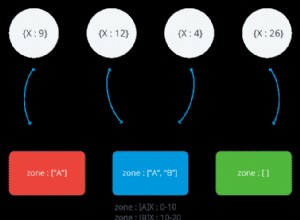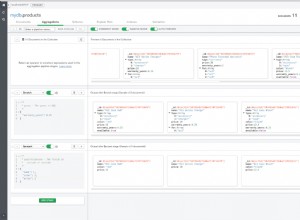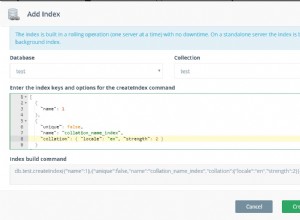OK, questo è un po' più complesso perché dovrai usare un po' di ricorsione.
Per fare in modo che la ricorsione avvenga, dovrai essere in grado di memorizzare alcune funzioni sul server.
Fase 1:definisci alcune funzioni e mettile lato server
isArray = function (v) {
return v && typeof v === 'object' && typeof v.length === 'number' && !(v.propertyIsEnumerable('length'));
}
m_sub = function(base, value){
for(var key in value) {
emit(base + "." + key, null);
if( isArray(value[key]) || typeof value[key] == 'object'){
m_sub(base + "." + key, value[key]);
}
}
}
db.system.js.save( { _id : "isArray", value : isArray } );
db.system.js.save( { _id : "m_sub", value : m_sub } );
Fase 2:definisci la mappa e riduci le funzioni
map = function(){
for(var key in this) {
emit(key, null);
if( isArray(this[key]) || typeof this[key] == 'object'){
m_sub(key, this[key]);
}
}
}
reduce = function(key, stuff){ return null; }
Fase 3:esegui la riduzione della mappa e guarda i risultati
mr = db.runCommand({"mapreduce" : "things", "map" : map, "reduce" : reduce,"out": "things" + "_keys"});
db[mr.result].distinct("_id");
I risultati che otterrai sono:
["_id", "_id.isObjectId", "_id.str", "_id.tojson", "egg", "egg.0", "foo", "foo.bar", "foo.bar.baaaar", "hello", "type", "type.0", "type.1"]
C'è un problema evidente qui, stiamo aggiungendo alcuni campi imprevisti qui:1. i dati _id2. il .0 (su uovo e tipo)
Fase 4:alcune possibili soluzioni
Per problema n. 1 la soluzione è relativamente facile. Basta modificare la map funzione. Cambia questo:
emit(base + "." + key, null); if( isArray...
a questo:
if(key != "_id") { emit(base + "." + key, null); if( isArray... }
Problema n. 2 è un po' più rischioso. Volevi tutti chiavi e tecnicamente "egg.0" è una chiave valida. Puoi modificare m_sub ignorare tali tasti numerici. Ma è anche facile vedere una situazione in cui questo si ritorce contro. Supponiamo che tu abbia un array associativo all'interno di un array regolare, quindi vuoi che appaia "0". Lascerò a te il resto della soluzione.




